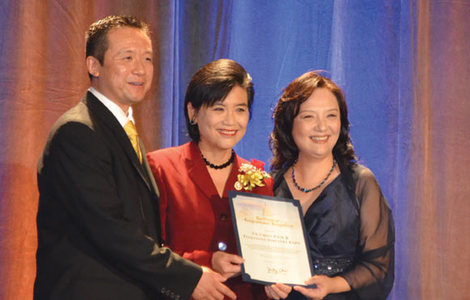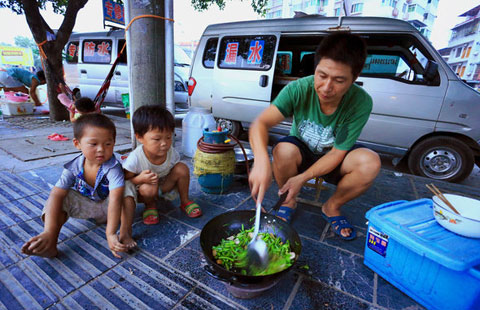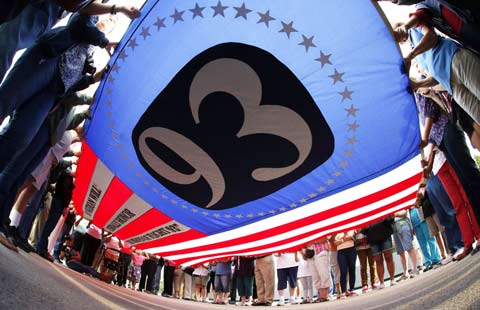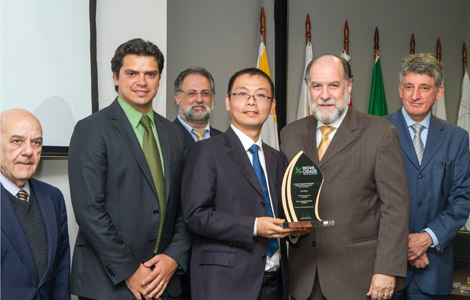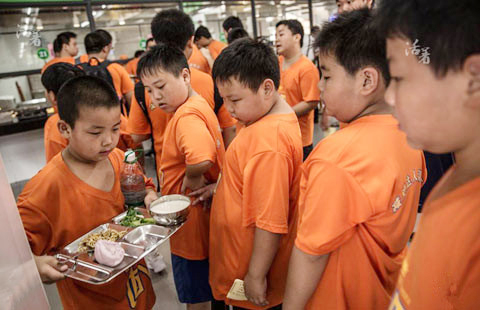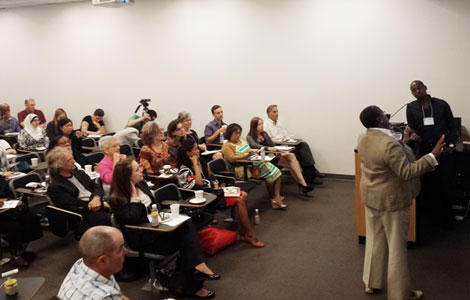US teachers visit China on fellowship
Updated: 2014-09-15 11:13
By Jack Freifelder in New York(China Daily USA)
|
||||||||
Educational exchanges between the world's two largest economies are not just for students. Teachers can also get in on the act.
A group of 12 teachers from the New York City area were chosen as this year's Astor International Travel Fellows, an 11-day program that brought together Chinese and American educators to share insights on approaches to teaching science in grade school, middle and high school.
Operating under the theme "Science Education Beyond Borders", this year's fellows spent the better part of two weeks in Shanghai working with teachers and other education officials to tease out some of the differences between their respective schooling systems.
Addae Cox, a seventh-grade science teacher at the Fort Greene Preparatory Academy in Brooklyn, said his experience on the Astor Fellows trip was "invaluable" because of the chances he had in China to confer with teachers and interview students.
"Some of the things we wanted to learn included some of the tools and strategies that Chinese schools use to engage students to study STEM subjects as they age," Cox said. "China has a very test-driven culture, but China's science curriculum is still a relatively new one."
Verneda Johnson, a math and science teacher at the Issac Newton Middle School in Manhattan, said one of the things she found intriguing was the amount of time that teachers in China are allotted to meet with other teachers for collaboration or lesson planning.
"Their teachers are certified in one particular area, as we are, but the thought that I would teach a bit of this and a bit of that is strange," Johnson said. "So the idea of being an expert in an area is very much appreciated and valued as a component in the way they view how science should be taught."
"But, as always, any good scientist walks away with more questions than they've answered," she said.
The symposium brought together teachers, school officials and members of the general public for a series of presentations on the group's findings from their time in China. New York University's Steinhardt School of Culture, Education, and Human Development hosted the event.
Mira Rubens, a grade school science specialist at PS 230 in Brooklyn, said one of her takeaways from the trip was the fact that Chinese parents have "high expectations that start early", so they expect their children to work hard from day one.
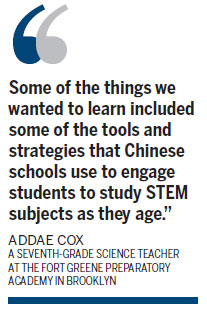
"When parents have active expectations around academic achievement, children are more likely to meet them," Rubens said. "Everyone in China is expected to excel, and you have to because it's crowded in China."
Diane Weisen, an elementary school science teacher at PS 120 in Queens, gave a joint presentation on Sept 13 with Reina Joa, a high school math teacher at the Brooklyn High School of the Arts, about professional development for teachers in China.
And both agreed that the preparation done before the classroom is just as important as the in-class instruction that teachers give to their students.
Weisen said: "Because teachers in China only teach 10-13 hours a week out of their whole 40-hour week, there are weekly meetings for lesson planning. And in the US, unless you meet during your lunch you're not meeting with your colleagues because you're teaching."
"Professional development is the most important aspect of what I saw because this is what I really want to bring back," she said. "There that time is embedded in the system and if we had that here we might have more collaboration."
The Astor Fellows Program, made possible by support from the estate of American philanthropist Brooke Astor, is awarded annually to a group of 10 to 12 teachers who travel during the summer accompanied by faculty from NYU Steinhardt.
Host sites for the program vary each year, rotating among NYU's global abroad sites, and program themes include STEM (Science, Technology, Engineering and Math) education, special education, literacy, art and music education and bilingual education.
Next year's trip to Buenos Aires will focus on special education.
jackfreifelder@chinadailyusa.com
(China Daily USA 09/15/2014 page1)
Most Viewed
Editor's Picks

|

|

|

|

|

|
Today's Top News
Apple Pay eyes inroads to China
Improved quality 'key to growth', says Li
IMF assesses risks and benefits of shadow banking
Sinopec privatization biggest in Xi's tenure
Beijing to tighten foreign hiring requirements
Hillary Clinton takes a big step toward 2016
US teachers visit China on fellowship
More CFAs buoy hopes for finance
US Weekly

|

|
